Victory forty-first
Without a declaration of war?
The author of these lines had long intended to address the topic of the beginning of the Great Patriotic War, but the immediate reason for the appearance of these notes was the publication on one Internet resource dedicated to the preparation of the USSR for the German attack. I deliberately do not name either the portal, or the name of the material, or the name of the author, since there are a lot of such texts, but it is remarkable as a typical example.
Like other similar publications, the text seems to have been written according to a training manual based on the theses of Khrushchev's report at the XX Congress of the CPSU, where Nikita Sergeevich proclaimed that the Soviet Union, through Stalin's fault, was not ready for war. The author diligently reproduced the postulates repeated a thousand times, except that he forgot to mention the tales of the prostrated leader, who spent the first weeks of the invasion in his dacha, and then, having come to his senses with difficulty, planned military operations on the globe.
But other claims to the Soviet leadership, wandering from one opus to another, are obvious. For example:
And if you leave the mockery and ask question number 1: what did you need to convince the Soviet people of? In the fact that they will fight on their own land and bear huge sacrifices?
Undoubtedly, it would be an inspiring propaganda message that would instill in people unshakable confidence in victory and would properly prepare society "for such a development of events."
It is unlikely that the Kremlin thought about such a bold experiment. Both then and now, propaganda - from state ideology to consumer advertising - is based on positive messages and scenarios. But it turns out that the attitude of defeat is exactly what Soviet society needed on the eve of the German invasion? As for the naivety of the Soviet people, it is worth familiarizing yourself with the NKVD memorandums on the mood among the people in order to understand that such did not consist of simpletons who piously believed in all slogans.
“Joseph Stalin addressed the Soviet citizens only on July 3,” the author reprimands the leader on duty, without explaining why he was obliged to speak earlier, and what he could then say to the people. By the way, Vyacheslav Molotov also announced the start of the Soviet-Finnish war to the country. So, the frequent memoir remarks of those years, such as “waiting for Stalin's speech,” rather testify to the authority of the Soviet leader than to the accepted order.
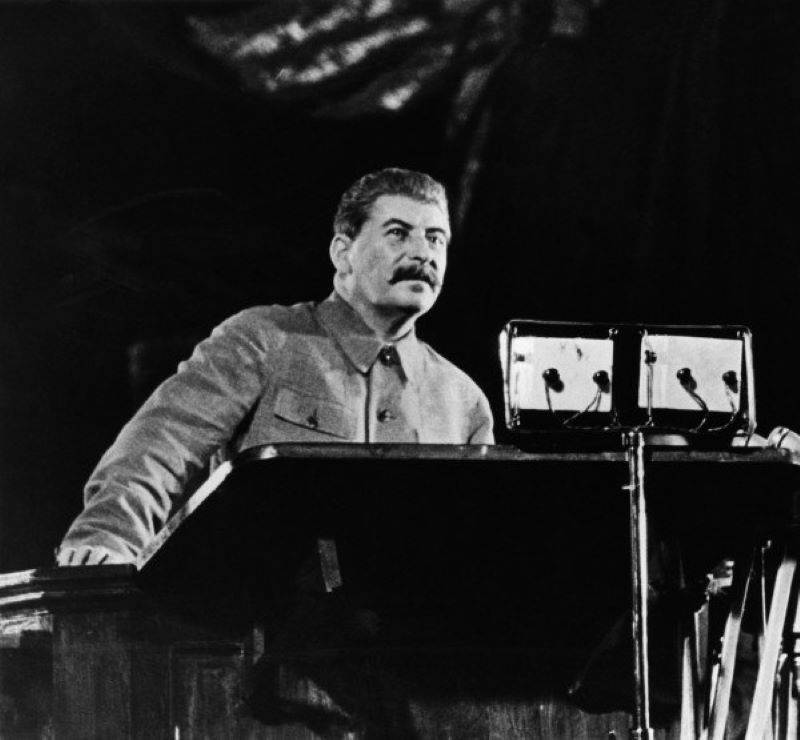
But this, of course, is not the last reproach to Stalin. “In his speech, he again repeated the thesis about the treacherous attack, which then finally migrated into propaganda and historical science ".
And what, in fact, does not suit the author and others like him in assessing Hitler's attack as "treacherous"? Treacherous - and therefore, in breach of obligation. Germany was bound by a non-aggression pact and violated it. This circumstance does not change due to the fact that Hitler did not think to comply with the agreement, and Moscow knew about it. The use of the epithet "treacherous" is a strict statement of fact, therefore it migrated into historical science, and - God himself commanded - into propaganda.
Much more vulnerable is another propaganda thesis of those years - that the Third Reich attacked the Soviet Union without declaring war, since VM Molotov was hiding all morning on June 22 from the German ambassador von Schulenburg, who was going to hand over the appropriate note to the Soviet leadership. But by the way, Stalin did not say anything about "not declaring" war.
But here is the main thesis, which is sung in different ways: "the Soviet leadership did not take timely measures", "the potential of the German military machine was underestimated", "The Red Army was practically not ready for a clash with the Wehrmacht grouping."
It would seem that it is not difficult to refute such constructions. There are many facts that indicate that there was a comprehensive and large-scale preparation for the war. Take, for example, the size of the Armed Forces, which grew from 1,5 million on January 1, 1938 to 5,4 million by June 22, 1941 - three and a half times! And these millions of people who had to be accommodated, armed, trained, clothed, shod, etc. etc., were lost to strengthen the defense capability and productive labor in the national economy.
Question number 2... What else could the Soviet leadership have done to rectify the situation?
In April-May 1941, a covert mobilization of the military-liable reserves was carried out under the cover of the "Big Training Camps" (BUS). In total, under this pretext, more than 802 thousand people were called up, which was 24% of the assigned personnel according to the MP-41 mobilization plan. At the same time, in May, the deployment of the second echelon of cover in the western military districts began. This made it possible to reinforce half of all rifle divisions of the Red Army (99 out of 198) located in the western districts, or divisions of the inner districts intended for transfer to the west.
The next step involved general mobilization. However, it was precisely this step that Stalin could not take. As military historian Alexei Isaev notes, most of the participants in the Second World War faced an intractable dilemma: the choice between the escalation of the political conflict due to the announcement of mobilization or joining the war with an unmobilized army.
A remarkable episode is cited by GK Zhukov in his book "Memories and Reflections". On June 13, 1941, he and Timoshenko reported to Stalin about the need to bring the troops to full combat readiness. Zhukov quotes the following words of the leader:
Comrade Zhukov is modestly silent about his reaction. Of course, both the Chief of the General Staff and the People's Commissar Tymoshenko understood perfectly well that the announcement of a general mobilization meant a declaration of war. But their business is "small" - to offer. Let Comrade Stalin decide. And takes responsibility.
Let's say that declaring war on Germany is a way out and a way to avoid the tests of the 41st. But here's a catch: time must pass from the beginning of mobilization to the complete transfer of the army and the rear on a military track. In "Considerations on the basics of the strategic deployment of the armed forces of the Soviet Union in September 1940" it is noted that
We are talking about the Kiev Special Military District. But it is clear that a similar situation developed in other districts.
Consequently, it was too late to declare war on June 13, as Zhukov and Timoshenko had proposed, and even on May 13. The Germans could have easily forced the transfer of troops and attacked all the same unmobilized units and formations of the Red Army.
It turns out that Stalin, in order to "justify" himself to future critics, had to go to war against the Third Reich in early May (or even better - at the end of April) without any reason and on the basis of contradictory information and forecasts, violating the non-aggression pact?
But even in this hypothetical given, the chances of success seem theoretical. Practice has shown that the mobilized forces of the Anglo-French, which had been in a state of war for six months, were utterly defeated during the German invasion of France in May 1940. By the way, the Poles also managed to mobilize in September 1939 and did it help them?
Moreover, if by some miracle the USSR succeeded in completely mobilizing and concentrating all the country's armed forces on the western border without any consequences, this would be a prelude to a tragic outcome, in comparison with which all the consequences of the "catastrophe of 1941" would have faded. After all, the Barbarossa plan was just based on the expectation that all Soviet troops would be located on the border and that, having destroyed them in the first weeks of the war, the Wehrmacht would continue to advance inland without encountering serious resistance, and would have achieved victory by November 1941 of the year. And this plan could have worked!
Unfortunately, even the most prompt and thoughtful actions of the Soviet military-political leadership to increase the combat readiness of the Red Army could not change the course of events in a collision with the best army in the world at that time.
Cadres didn't decide anything?
And then the next one inevitably rises question - no. 3: Why was the Wehrmacht, and not the Red Army, in this superior capacity?
Within the framework of these notes, I would like to touch upon only one aspect of this separate complex topic. Historians are quite unanimous in assessing the best "level" of the Wehrmacht officer cadres in the initial period of the war: from senior command personnel to junior commanders, primarily in operational thinking, the ability to take the initiative.
Liberal publicists and researchers explain this by large-scale repressions against the command staff of the Red Army. But, according to documented data, the total number of command and control and political personnel repressed in 1937-1938, as well as dismissed from the army for political reasons and not subsequently reinstated is about 18 thousand people. Here we can add 2-3 thousand people who were repressed in the following years. But in any case, their share does not exceed 3% of all commanders of the Red Army, which could not have any noticeable effect on the state of the officer cadres.
The results of the repressions traditionally include a large-scale rotation of the command staff of the Red Army, during which all the commanders of the military districts, 90% of their deputies, chiefs of the military and service branches were replaced. 80% of the commanding staff of corps and divisions, 91% of regiment commanders and their deputies. But it is impossible to unequivocally assess this process as negative, since in this case objective evidence is needed that the worst changed the best.
Many historians explain the shortcomings of the "red" officers by the rapid quantitative growth of the army and the huge need for command personnel, which in such a short time was not able to satisfy the training system. Indeed, the changes were incredible. From 1937 to 1941, the number of formations of the Ground Forces more than tripled - from 98 to 303 divisions. On the eve of the war, the officer corps numbered 680 thousand people, and less than ten years ago, in 1932, the entire army numbered 604 thousand people.
With such a quantitative increase, it would seem that a drop in quality is inevitable. But in terms of personnel, Germany was in an even more difficult situation. When in the late 20s the Red Army reached its minimum number of half a million people, the Reichswehr was limited by the Treaty of Versailles and one hundred thousand. Germany introduced general conscription in 1935, the USSR later in September 1939. But, as we can see, the Germans had to solve a much more difficult task, nevertheless, they coped with it much better than their Soviet opponents.
And here it is worth paying attention to the factor that is given insufficient importance. Germany and Austria-Hungary surrendered and ceased hostilities in November 1918, and the bloody Civil War continued in Russia for two more years. There are no exact statistics on human losses. By the most conservative estimate, eight million people died (were killed, repressed, died of wounds, disease and hunger) in Russia during this time, and two million more emigrants must be added to this.
In less than a decade, the country lost ten million people, a significant proportion of whom were participants in the First World War, including professional military personnel. So, with the troops of Wrangel, 20 officers were evacuated. No Germany, who knew such losses, received a huge head start in human potential: a much wider choice of people with a combat past.
But even the scarcer human resource in the USSR was poorly used. If during the Civil War a significant number of regular officers fought on the side of the Reds - the figure is 70-75 thousand, then as the army was reduced, the command staff of the Red Army shrank primarily at the expense of the "former". The transformation of the Red Army began with the territorial army, the backbone of which by that time consisted of people with a specific experience of the Civil War, moreover, fairly diluted by political workers.
At the same time, the one hundred thousandth Reyhover consisted of the country's military elite - both the officer and non-commissioned officer corps. It was a "military bone", people who, in the difficult realities of the Weimar Republic, remained faithful to their duty, military service.
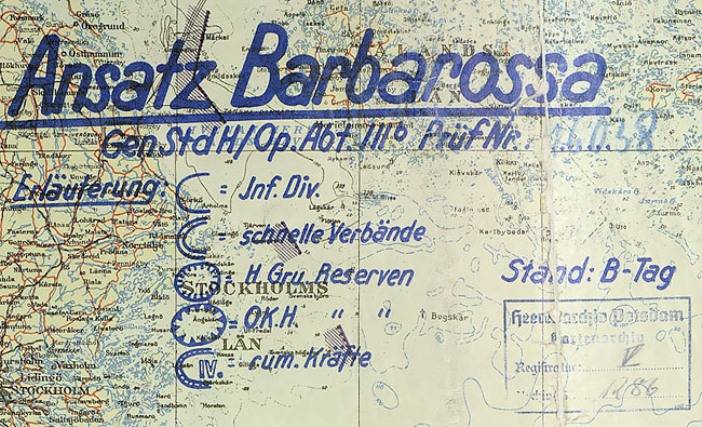
The Germans had a head start in other ways. According to a number of researchers, in the First World War, the German army fought better than all other participants in the conflict, which is confirmed by the ratio of losses and the use of new military doctrines and tactics of warfare. American historian James Corum notes that the German army entered the First World War with tactical principles more balanced and close to reality than its main opponents. Even then, the Germans avoided head-on collisions and used detours and encirclements, also more effectively than others, taking into account the peculiarities of the landscape.
Germany was able to preserve both the best military personnel and the continuity of traditions. And on this solid basis, in a short time, to deploy a system of personnel training, which ensured not only the quantitative growth of the army, but also the high quality of personnel training, primarily the officer corps.
The Wehrmacht managed to enhance the high qualities of the German imperial army. At the same time, the Red Army, having severed any connection with the past, at the turn of the 30s began not even from "zero", but rather "minus".
On the beaten field marshals and marshals of Victory
In order to more substantively imagine the difference between the officer corps of the Wehrmacht and the Red Army, we will have to ask question number 4: In what way were the commanders of the Red Army inferior to the German officers?
Let us first analyze the composition of the Soviet marshals who participated in the Great Patriotic War, and the field marshals general of the Third Reich. From our side, for obvious reasons, we do not consider Stalin among the professional military leaders. As for the German side, we exclude Paulus, who received the rank in a very specific situation, as well as Rommel and Witzleben, who did not fight in the East, and Blomberg, who was retired by the beginning of the war.
So, 13 marshals of the Soviet Union (Budyonny, Vasilevsky, Voroshilov, Zhukov, Govorov, Konev, Kulik, Malinovsky, Meretskov, Rokossovsky, Timoshenko, Tolbukhin, Shaposhnikov) and 15 field marshals general (Bok, Brauchich, Bush, Keichs, Keitel , Kluge, Kühler, Leeb, Liszt, Manstein, Model, Reichenau, Rundstedt, Schörner).
Almost all of our marshals fought in the First World War and very bravely, but only one Boris Shaposhnikov was then an officer and had real experience in staff work. Meanwhile, all German military leaders - except for Ernst Busch and Ferdinand Scherner - by the end of the First World War held the posts of chief of staff or chief of the operations department of a division (corps) headquarters, that is, they had direct experience in planning operations in combat conditions. It is clear that this is not an accident, but a fundamental criterion for the selection of personnel, and not only for the highest command posts.
Take the level below: the conventional Wehrmacht colonel of the 1941 model is a conventional lieutenant of the First World War. The more junior officers received excellent training and already had relevant and - what is no less valuable - victorious experience in conducting full-scale hostilities. And all this relied on a powerful non-commissioned officer corps, which consisted of professionals of military careers, carefully selected for the highest requirements and enjoyed much more prestige in society than the NCOs in the US and European armies.
Some researchers point to data, in their opinion, indicating a high level of qualification of the command personnel of the Red Army, in particular, a steady increase in the number of officers with a higher military education, which by the beginning of the war had 52% of the representatives of the Soviet high command personnel. Academic education began to penetrate even the level of battalion commanders. But the trouble is that no amount of theoretical training can replace practice. Meanwhile, only 26% of the commanders had, though insufficient, but definite combat experience of local conflicts and wars. As for the political composition of the army, most of it (73%) did not even have military training.
In the conditions of limited combat experience, it was very difficult not only to prepare worthy commanders, but also to assess their true qualities. In the Red Army, this circumstance largely determined both the personnel leapfrog (as mentioned above) and the rapid career takeoffs. The officers who distinguished themselves in rare conflicts immediately appeared "in sight".
As soon as Mikhail Kirponos received a division in December 1939 and showed himself well during the Soviet-Finnish war, six months later he became the commander of the Leningrad Military District, and six months later he headed the most important Kiev Special Military District. Did Kirponos rise to the occasion as a front-line commander in June-September 1941? The question is debatable. But in any case, the Soviet party and army leadership in pre-war conditions had no other opportunity to adequately assess its potential, as well as the potential of other senior officers.
As for junior commanders, on the eve of the war, they were trained on an industrial scale at accelerated courses. But who and what could have taught them there? Of course, all of the above does not mean that there were no competent proactive commanders in the Red Army. Otherwise, the outcome of the war would have been different. But we are talking about the average and the overall picture, which led to the objective superiority of the Wehrmacht over the Red Army during the invasion.
Not the balance of forces, the quantity and quality of weapons and the difference in the combat readiness mode, but the personnel resource became the factor that predetermined the success of the Germans in the summer of 1941. However, this advantage could not have a long-term effect. The paradox of the Great Patriotic War: the longer it lasted, the more the merits of the German army became its disadvantages.
But back to the list of the top commanders of the two armies. In both cases, the backbone, the main nucleus, stands out sharply. Among the Soviet generals, these are 9 people born in a short (four and a half years) interval: between June 1894 (Fedor Tolbukhin) and November 1898 (Rodion Malinovsky). To this glorious cohort can be added the prominent military leaders who received marshal's epaulettes soon after the end of the war - Ivan Baghramyan and Vasily Sokolovsky (both born in 1897). The same backbone (10 people) among the Germans is made up of commanders born in 1880-1885, and four of them (Brauchitsch, Weichs, Kleist and Kühler) are the same age, were born in 1881.
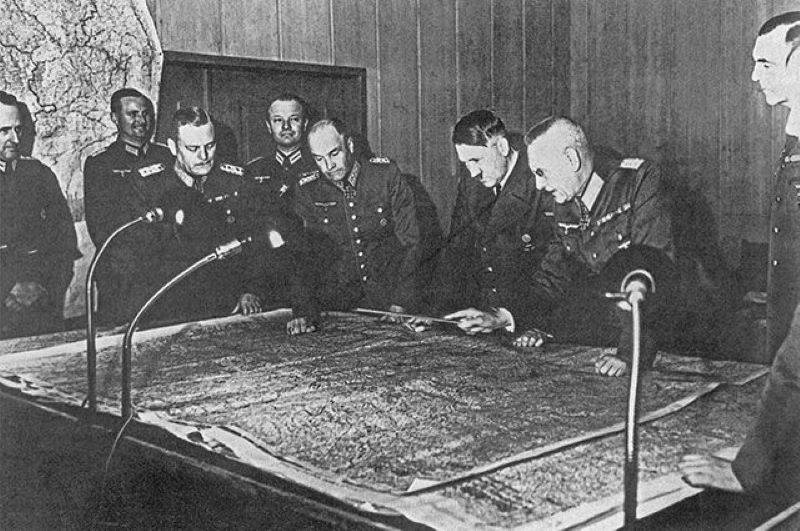
So, the "average" German field marshal general is about 15 years older than the Soviet counterpart, he is about 60 or more, it is more difficult for him to endure colossal physical and mental stress, to adequately and promptly respond to a change in the situation, to revise, and even more so to refuse the usual techniques that previously brought success.
Most Soviet marshals are about fifty, at this age there is an optimal combination of intellectual activity, energy, susceptibility to new things, ambitions, backed up by quite solid experience. It is not surprising that our generals were able not only to successfully learn German lessons, but also to significantly surpass their teachers, to creatively rethink and significantly enrich the arsenal of operational art.
It is noteworthy that, despite a number of high-profile victories of the Wehrmacht in the East in 1941-1942, not a single new "star" has risen in the German military horizon. Nearly all field marshals had earned their titles prior to the start of the Eastern Campaign. Hitler, who did not hesitate to resort to resignations, nevertheless mainly operated with a cage of recognized military leaders. And even the repression among the command staff after the July 1944 conspiracy did not lead to large-scale personnel shifts that would allow a new generation of commanders to take the first roles.
There are, of course, exceptions, which are "young" by the standards of the Wehrmacht Walter Model (b. 1891) and Ferdinand Scherner (b. 1892), who showed themselves precisely during the war against the USSR. Moreover, Scherner was awarded the rank of Field Marshal only in April 1945. Other potential "Rokossovskie" and "Konevs" of the Third Reich, even with the support of the Fuehrer, could, at best, lay claim to command of the corps, even at the very end of the war.
During the Great Patriotic War, the personnel potential of the middle and junior command echelon of the Red Army changed significantly. In the first month of the war, over 652 reserve officers were mobilized, most of whom had short-term military training. This group of commanders, along with the regular officers, took upon themselves the worst blow of the enemy. For 1941-1942. accounts for more than 50% of all irrecoverable losses of officers during the war. Only during the defeat of the Southwestern Front in September 1941, the Red Army lost about 60 command personnel. But those who remained in the ranks, having gone through an invaluable school of fierce battles, became the "golden fund" of the Red Army.
The main burden of training future commanders fell on military schools. At the beginning of the war, the selection of cadets was made among students of 1–2 courses of universities, conscripts of 1922–1923. births with education of 9-10 grades, as well as military personnel of 18–32 years old with an education of at least 7 grades. 78% of the total number of those admitted to schools were civilian youth. True, during the war, the level of requirements for candidates decreased, but for the most part the army received a highly educated, physically and intellectually developed officer, brought up in the spirit of Soviet patriotism.
In the second half of the 30s, the Soviet education system, both higher and secondary, moved to the forefront. And if in the middle of the XIX century the Prussian teacher defeated the Austrian, in the Great Patriotic Soviet school clearly surpassed the German one. During the war, military schools and Air Force schools trained about 1,3 million officers. These yesterday's boys, students and schoolchildren - and now lieutenants who commanded companies and batteries, transformed the appearance of the army, which was destined to become the Army of the Victorious.
The ending should ...
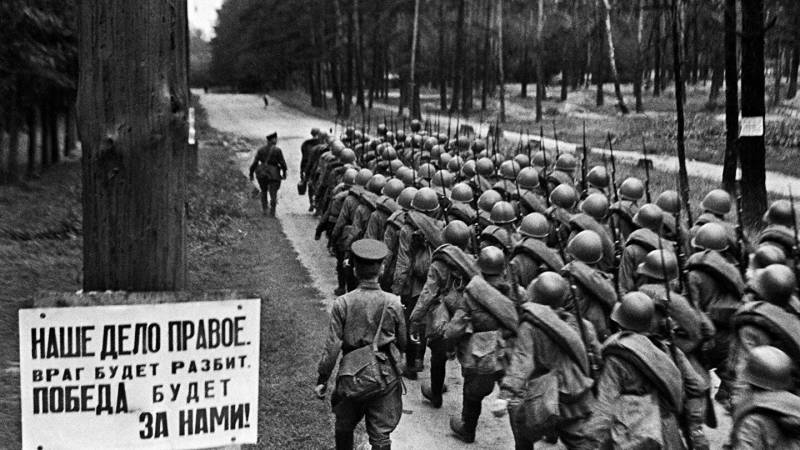
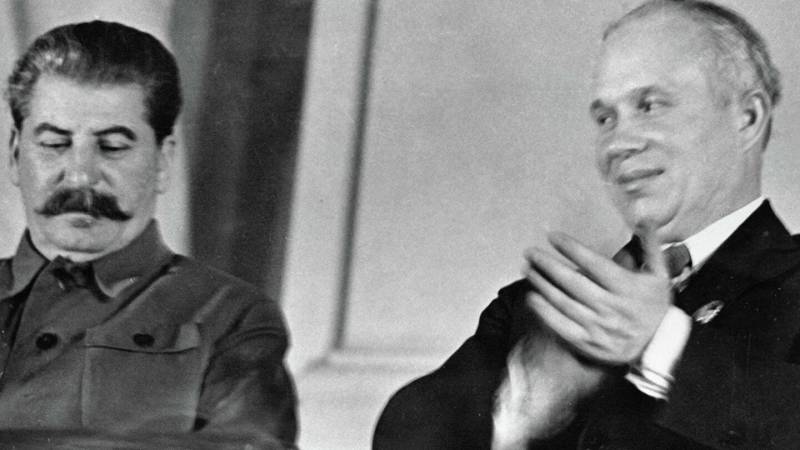
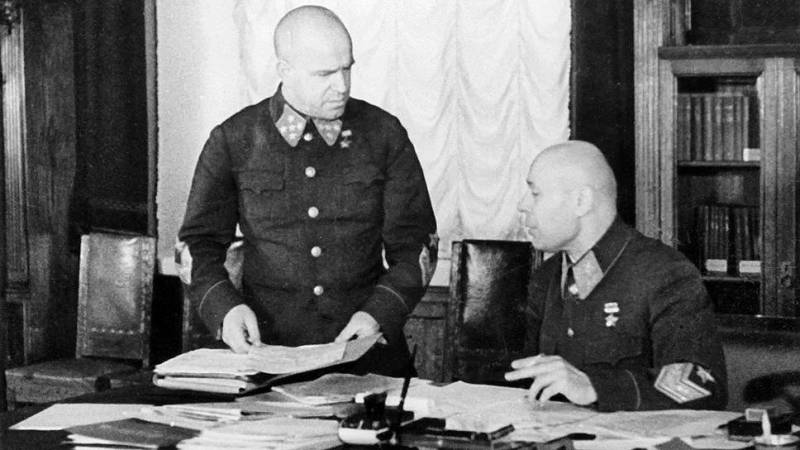
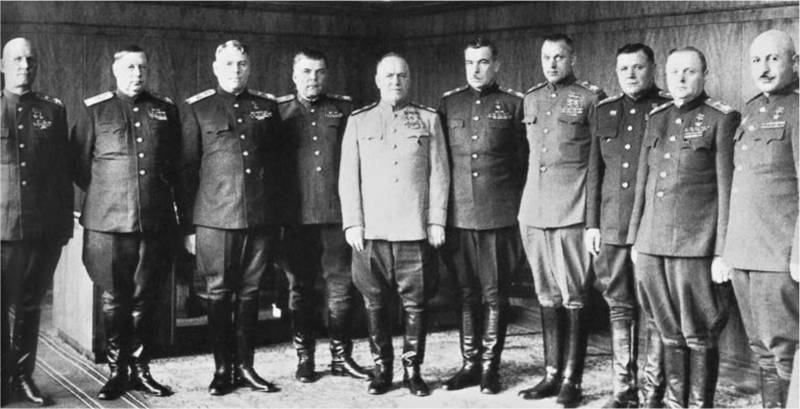
Information